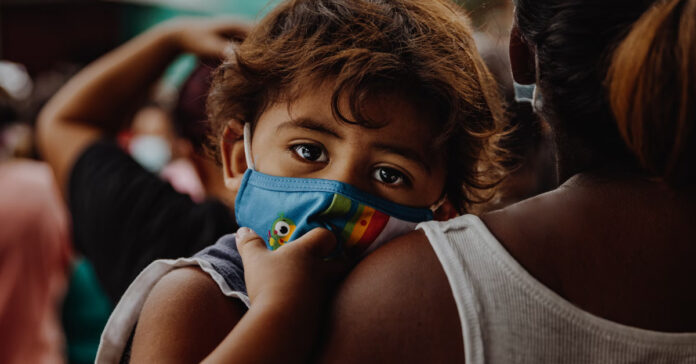[ad_1]
Because we are vulnerable to this disease because we are highly connected to other people, we must work together to deal with it. And working together is challenging under the best of circumstances. It’s hard for any of us to recognize our interdependence – which is one of the central teachings of Buddhism, and one of the central tenets of standard public health.
Working together is especially challenging in cultures, such as in America, that prize hyper-individualism in general – and in which for the past 40 years there has been a sustained attack on the very notion of the common good.
On a related point, in a culture that prizes personal convenience and the rapid gratification of personal desires, it can feel like a particularly high price to pay to adjust or curtail your behavior to reduce potential harms to others.
It’s tiring to be still dealing with this after two very l-o-n-g years. People get exhausted and fed up. The costs of this plague to themselves – including the burdens of not harming others – are painfully obvious and have been steadily accumulating; the brain gets sensitized to stress and pain and increasingly reactive to it; there is a natural tunneling of vision when we are under chronic stress that brings the focus closer and closer to ourselves and away from others; so it becomes harder and harder to consider them and hold them in our heart.
In sum, we’ve got challenges!
Two Kinds of Harms
During a plague, there are two kinds of harms: to oneself and to others.
For example, getting covid is a harm to oneself, and a particularly serious harm for many of us. Not engaging in enjoyable or important activities is a harm to oneself. Wearing a mask, especially in certain situations, is a drag and can be experienced as a harm to oneself. Having a needle stuck in your arm is a harm to oneself. Side effects from a vaccination are a harm to oneself. We could list other harms to oneself during a plague. I’m not trying to evaluate which harms are the worst ones. People can disagree about how big a harm is or why it happens or how to avoid it, and I’m not going to try to resolve that here.
Harms to others include passing along the coronavirus to them: maybe they become asymptomatic . . . maybe they feel sick for a few days . . . maybe they get long covid . . . maybe they need to be hospitalized . . . maybe they die. Or maybe they pass along the virus they received to others . . . who pass it to others . . . who pass it to someone it kills. These are the simple facts of a highly contagious plague.
It harms others to burden doctors, nurses, and other healthcare workers – sometimes to the point of killing them with this disease. It harms others to overwhelm hospitals and other healthcare settings. It harms others to clog the healthcare system and block their access to medical treatment for other issues. It also harms others to close their workplace and put them out of a job. It harms children to keep them out of school. It harms teachers to open schools without adequate ventilation and other working conditions that would protect them from the covid passed along by highly infectious children. It harms people to close the gyms that were a major source of mental and physical health. It harms people to force them to wear a mask when they don’t want to. Lots of harms, and complicated ones.
We each make choices about risks of harms to ourselves. These are often complex choices, weighing different kinds of risks, some immediate and some long-term. These can be tough choices, and I’m not going to judge them or focus on them. Instead, I’m going now to focus on risks of harms to others – specifically, the harms of them getting covid.
Externalizing Costs during the COVID Plague
I’m focusing now on the virtuous conduct, the sila, of not giving covid to other people.
I understand reservations about vaccines, critiques of Big Pharma, mistrust of Big Medicine, and valuing of holistic health. I understand these because that’s how I see it, too.
I understand frustrations with evolving public health policies and confusing messaging, dislike of masks, and irritation at mandates. I feel the same way.
I get all that, and you can see what I’ve written about it here.
From the standpoint of virtuous conduct, there are people who do not want to wear a mask or get vaccinated for personal, sometimes health-based reasons – and who are also extremely careful about not infecting other people. The principle of not harming others is important to them, and they walk that talk.
Further, we must balance reducing harms to ourselves with reducing harms to others. There is no way around this. While taking others into account, a person could carefully decide to reduce a harm to oneself while knowing that it could increase potential harms to others. These are complex, difficult choices depending on very real situations, and I respect people who consider them thoughtfully while holding others in their heart.
[ad_2]
www.rickhanson.net







